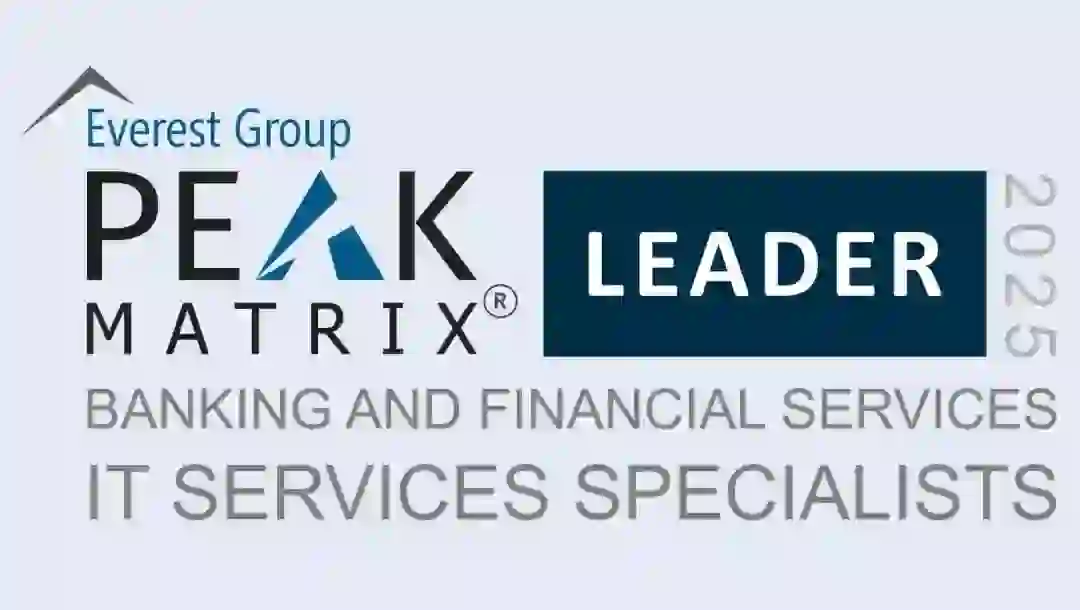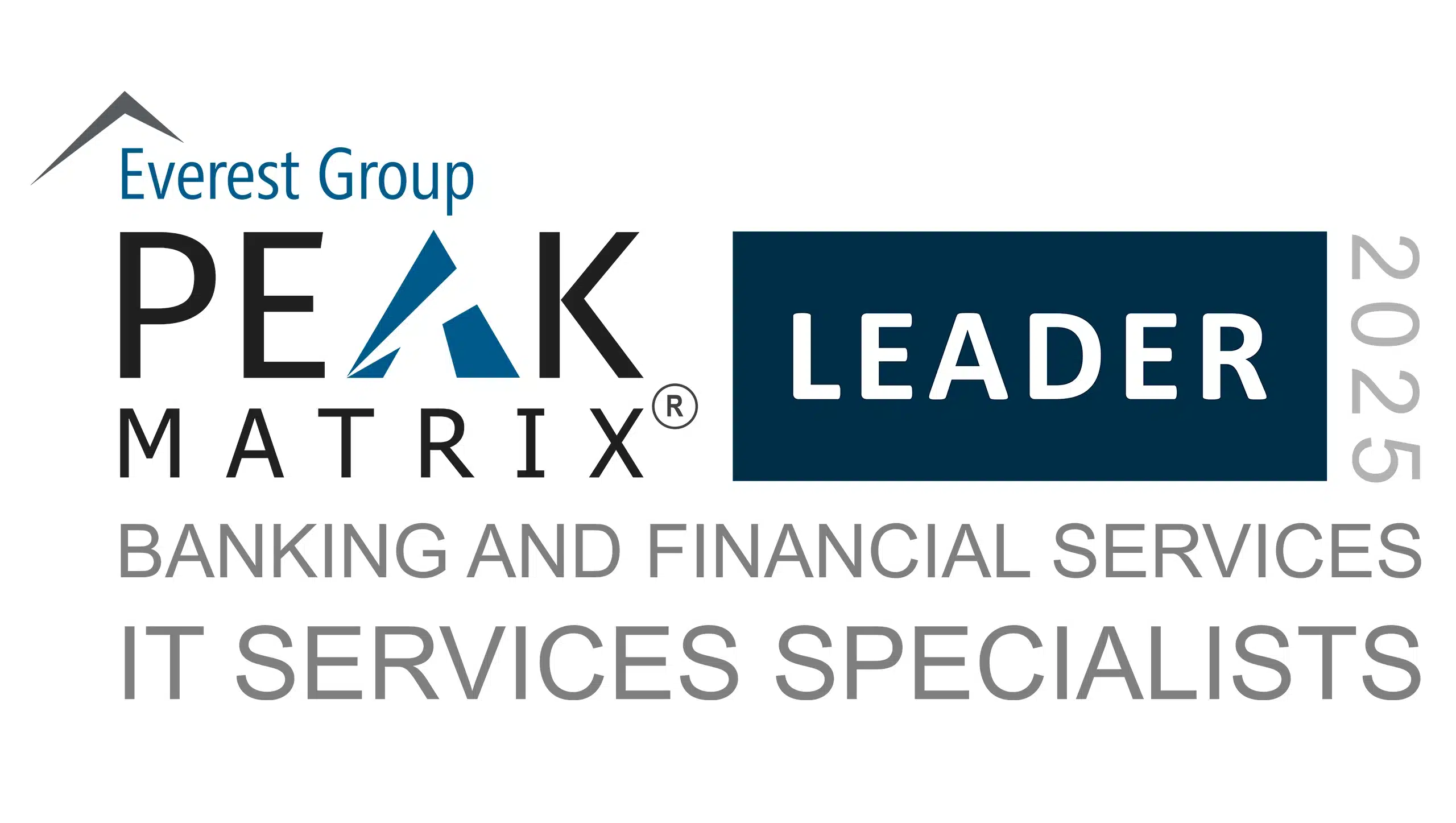Reuters Events hosts this year’s annual Future of Insurance USA Summit on June 12-13, 2025, in Chicago, Illinois. The theme is Rebuild Trust at the Top, with a focus on the value that AI-powered tools, customer-centric products, and strategic collaborations can bring to insurers in all sectors of the industry. The emphasis on these topics are driving 500+ insurance leaders, innovators, and top technology providers like Iris Software to participate in the Summit.
Abhineet Jha, Senior Client Partner, will represent our Insurtech Team at the event.
Four main topic areas will be addressed in the presentations and networking discussions in support of the theme of the 2025 FOI Summit:
- Technology Innovation and Transformation, focusing on AI and Data Analytics
- Risk Management, including cyber threats and regulatory compliance
- Customer Experience, developing seamless UX, personalization, and enhanced communications
- Industry Collaboration, building strategic partnerships
These areas are a top focus of the Insurtech services and solutions that Iris successfully provides to leading carriers in property, casualty, specialty, and life and annuity insurance.
Discuss the evolving insurance landscape, Insurtech innovation, and your technology priorities with Abhineet Jha, our seasoned insurance expert, at Reuters Future of Insurance USA 2025. Learn how insurers are partnering with Iris and applying our solutions in AI/ML, Application Modernization, Automation, Cloud, Data Science, Enterprise Analytics, and Integrations to advance their digital transformation goals.
You can also contact our team and read more about our InsurTech Services and Solutions and successes in future-proofing insurance enterprises here: Insurance Technology Services | Iris Software.
Contact
Our experts can help you find the right solutions to meet your needs.
Get in touchMeet our team at the Payments Canada Summit 2025

The 2025 Payments Canada Summit, themed Innovate-Collaborate-Transform, is May 6 - 8 at the Automotive Building in Toronto, Ontario. This forum is considered Canada’s premier payments event, bringing together more than 1,900 participants to discuss innovation, challenges and opportunities in this dynamic global industry. Financial institutions, payments and technology service providers, retailers, monetary and regulatory professionals will connect, learn, and share ideas through presentation and networking sessions. The key topics relate to improving outcomes in digital payments, consumer experiences, risk and fraud mitigation, cross-border and other payments policies.
Connect with three of our banking and financial services (BFS) technology experts at the Summit to discuss digital transformation and payment system modernization: Subramanian Viswanathan, Associate Vice President, Mehul Shah, Associate Director, and Suneela Katikala, Senior Client Partner.
The advanced technologies that Iris delivers – across AI / Generative AI, Application Development, Automation, Cloud, DevOps, Data Science, Enterprise Analytics, and Integrations - are driving innovations in the payments sector every day. Our experienced global team helps financial institutions and payments providers enhance operations, security, scalability, cost-efficiency, and compliance in the myriad platforms, processes and systems supporting their domestic and international payments transactions. Iris has served BFS clients for more than 30 years and was named a Leader in BFS IT Services by Everest Group in its PEAK Matrix® Assessment 2025. Iris is also PCIDSS 4.0-certified to ensure robust cyber security and compliance for our clients involved in payment card processing or that store, process, or transmit cardholder data and/or sensitive authentication data.
Contact our team at the Summit or anytime at Iris Software Banking and Financial Services to learn more about our future-ready technology solutions. You can also read our Perspective Papers for insights on Real-world Asset Tokenization, leveraging Generative AI for Asset Tokenization and the state of Central Bank Digital Currency.
Contact
Our experts can help you find the right solutions to meet your needs.
Get in touchJoin us at the InsurTech Hartford Symposium

The InsurTech Hartford Symposium 2025 is April 29 and 30 at the Connecticut Convention Center. The focus of the forum’s numerous speakers, sessions, and attendees is on innovation, and how it’s driving digital transformation and growth in the insurance industry.
As most insurers’ strategic objectives include the improvement of product line innovation, personalized customer experience, operational efficiency and security, and compliance and risk management, partnering with experienced technology service providers like Iris Software is critical to their business success.
At the Symposium, insurance leaders and innovators can meet Venkat Laksh, Senior Client Partner and seasoned InsurTech pro, to learn how insurers are applying our advanced software engineering solutions, in Application Development, Automation, AI / Generative AI, Data Science, Enterprise Analytics, and Cloud, to modernize tech infrastructure, optimize business competencies and secure their digital futures.
Connect with Venkat at the InsurTech Hartford Symposium 2025 for beneficial conversation on the latest InsurTech innovations and trends. You can also contact Venkat and our InsureTech team and get more information about our InsurTech solutions and services here: Insurance Technology Services | Iris Software.
Contact
Our experts can help you find the right solutions to meet your needs.
Get in touchEverest Group Names Iris Software a Leader in BFS IT Services

Iris is proud to be recognized as a Leader in the inaugural Banking and Financial Services (BFS) IT Services Specialists PEAK Matrix® Assessment 2025 by Everest Group. This assessment is the first-ever for this category, and for Iris!
We were evaluated along with 29 other BFS IT service providers on our market presence, value delivery, strategic vision, innovation, technical capabilities, functional knowledge, and buyer references.
Pranati Dave, Practice Director, Everest Group, stated, “Iris Software’s expertise in capital markets and risk and compliance transformation, combined with a skilled talent pool and a strong reputation for execution, continues to drive its success with top-tier financial institutions. Clients have consistently recognized Iris for its low attrition, engineering rigor, and collaborative delivery model. Its investments in ML Ops, AI/ML, and modernization of cloud-based data and risk platforms have helped Iris earn a Leader recognition on Everest Group’s inaugural Banking and Financial Services (BFS) IT Services Specialists PEAK Matrix® Assessment 2025.”
Sunil Puri, President, Iris Software, stated, “We are honored to be named a Leader in BFS ITS by Everest Group. During our more than 30 years of growth in the BFS and other sectors, including Capital Markets & Investment Banking; Brokerage, Wealth & Asset Management; Commercial & Corporate Banking; Risk & Compliance; Retail Banking & Payments; Anti-Money Laundering & Know-Your-Customer; Insurance; Manufacturing; Logistics; Life Sciences and Professional Services, we have been a long-term partner in our clients' transformation journeys - helping to build, integrate and modernize complex platforms, systems, and applications.”
When IT matters most, clients call upon Iris to provide mission-critical software engineering and advanced application development services across AI/Generative AI, Automation, Cloud, Data & Analytics, Integrations, DevOps and Quality Engineering.
We remain steadfast in our vision of being our clients’ most trusted technology partner and thank our associates for their dedication and innovation.
Learn more about our BFS services, value proposition and client success stories and contact our team today.
Disclaimer
Licensed extracts taken from Everest Group’s PEAK Matrix® Reports, may be used by licensed third parties for use in their own marketing and promotional activities and collateral. Selected extracts from Everest Group’s PEAK Matrix® reports do not necessarily provide the full context of our research and analysis. All research and analysis conducted by Everest Group’s analysts and included in Everest Group’s PEAK Matrix® reports is independent and no organization has paid a fee to be featured or to influence their ranking. To access the complete research and to learn more about our methodology, please visit Everest Group PEAK Matrix® Reports.
Contact
Our experts can help you find the right solutions to meet your needs.
Get in touchLIMRA 2025 Workplace Benefits Conference

The LIMRA (Life Insurance Marketing and Research Association) 2025 Workplace Benefits Conference takes place April 23-25, 2025, at the Encore Boston Harbor in Boston, MA. With this year’s theme, Pathways to Growth, industry leaders and participants will examine the business and technology trends affecting the North American workplace benefits market. Speakers and attendees, primarily carriers and brokers of life, health, and related insurance coverage, and providers of employee benefits and technology solutions, will explore strategies for growth while addressing shifting consumer needs, the latest digital tools and technologies, and an increasing focus on innovation, outcomes and collaboration.
Venkat Laksh, Iris’ Global Lead – Insurance, and Senior Client Partner, will attend this forum. Iris provides leading insurance companies with advanced InsurTech services and solutions, including Software and Quality Engineering, AI/ML/Generative AI, Application Modernization, Automation, Cloud, Data Science, Enterprise Analytics and Integrations. These companies are applying next-generation, emerging technology through Iris to ensure their enterprises are future-ready, scalable, secure, cost-efficient, and compliant.
Talk about your digital priorities with Venkat at the LIMRA 2025 Workplace Benefits Conference and connect with our InsurTech team anytime to advance your digital transformation goals: Insurance Technology Services | Iris Software.
Contact
Our experts can help you find the right solutions to meet your needs.
Get in touchInsurTech NY 2025 Spring Conference

The annual InsurTech NY Spring Conference is April 2-3, 2025, at Chelsea Piers in New York City. The theme of this year’s forum is InsurTech is the New R&D. The event brings together 900+ leaders and innovators in the industry, including carriers and brokers of life, health and disability, property and casualty (P&C), and specialty insurance; investors; and insurtech service providers like Iris Software. Each year, speakers and attendees focus on the technology and business management solutions that will enhance the operations, customer experience, and revenue streams of insurers.
Meet the leaders of our global InsurTech team - Ravi Chodagam, Vice President, Venkat Laksh and Abhineet Jha, Senior Client Partners - at InsurTech NY’s 2025 Spring Conference. As an integral and long-time technology partner to many top life, P&C, and specialty insurers, Iris has vast experience implementing agile and advanced technology and data solutions that ensure clients stay competitive and ahead of rapidly evolving trends in the dynamic insurance industry.
Discuss your tech priorities with Ravi, Venkat and Abhineet at the Spring Conference, or anytime, and learn how leading insurers apply our solutions in AI and Generative AI, Application Modernization, Automation, Cloud, and Data Science & Analytics to ensure their enterprises are future-ready, scalable, secure, cost-efficient, and compliant. You can also contact the team and learn more about our InsurTech Services here: Insurance Technology Services | Iris Software.
Contact
Our experts can help you find the right solutions to meet your needs.
Get in touchJoin us at Reuters Pharma USA 2025

Reuters Pharma USA 2025 Conference, noted as North America’s largest cross-functional pharmaceutical gathering, is scheduled between March 18-19, 2025, at the Pennsylvania Convention Center in Philadelphia. With the pharmaceutical industry continually pressured by shifts in market trends and participants, product development, consumer sentiment, and government regulations, attendees and speakers at this Conference will be seeking and sharing insights and strategies to best navigate change, remain competitive, and future-proof operational units as well as global enterprises.
Swarnendu Banerjee, client partner and seasoned IT professional for the pharmaceutical and life sciences sectors, will be attending the Reuters Pharma USA 2025 Conference. He will share Iris’ extensive experience in these domains. How our advanced capabilities in AI/Generative AI, Application Development, Intelligent Automation, Cloud, Data & Analytics, Integrations, and Quality Engineering have delivered successful outcomes in mission-critical engagements, ensuring quality and compliance, reducing costs, enhancing UX, modernizing, migrating, scaling, accelerating, and streamlining.
Connect with Swarnendu at the Reuters Pharma forum or anytime, or visit our Services and Life Sciences capabilities pages to explore our innovative approach and strategies for end-to-end digital transformation.
Contact
Our experts can help you find the right solutions to meet your needs.
Get in touchIndustries
Company

Bring the future into focus.




